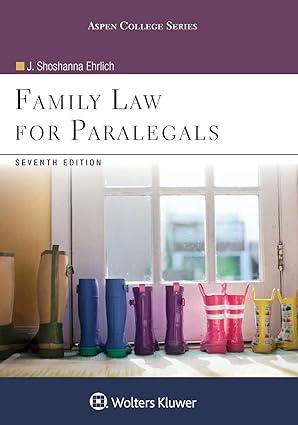The court held a hearing on Hamm's motion to dismiss in March 2015. Seekins was the only
Question:
The court held a hearing on Hamm's motion to dismiss in March 2015. Seekins was the only witness. Shortly thereafter, the court entered a written judgment in which it found that Seekins now resides in Maine, that neither Hamm nor the child has ever been to Maine, and that the child has resided in Guatemala with Hamm since her birth. The court dismissed Seekins's complaint because, pursuant to the UCCJEA, the initial child custody determination must be made in the "home state" - which for this child is Guatemala, not Maine - absent a showing that the home state has declined jurisdiction. See 19-A M.R.S. § 1745(1). Seekins timely appealed from the judgment With certain exceptions not applicable here, "a court of this State has jurisdiction to make an initial child custody determination only if" one of four criteria is met. See 19-A M.R.S. § 1745(1). Jurisdiction will lie in Maine if (A) Maine "is the home state of the child on the date of the commencement of the proceeding or was the home state of the child within 6 months before the commencement of the proceeding and the child is absent from this State but a parent or person acting as a parent continues to live in this State"; (B) no other state has "home state" jurisdiction; (C) any "home state" declined jurisdiction on the basis that Maine is the more appropriate forum; or (D) "[n]o court of any other state would have jurisdiction"pursuant to the preceding criteria. Id. § 1745(1)(A)-(D). Section 1745(1) "is the exclusive jurisdictional basis for making a child custody determination by a court of this State." Id. § 1745(2). Thus, although the child's physical presence is not necessarily required for the court to make a child custody determination, \(i d\). §1745(1), (3), at least one of the criteria of section 1745(1) must be met for the court to have jurisdiction.....
Questions:
1. What sources of law did the father invoke in seeking to persuade the Maine Court that it had child custody jurisdiction?
2. Why did the court reject the father's claim under the UCCJEA? Under the Hague Convention? Under the other sources of law that he cited?
3. Would the result have been different if the parties had agreed to move to Maine, and the mother then changed her mind and remained behind in Guatemala with the child?
Step by Step Answer:






